
by blogadmin | Jul 12, 2020 | Blog Post, Delaware, Media Publishing's, Year 2020
I am a Sikh born and raised in India. Twenty-one years ago, when I came to the US, I knew nothing about racism in this country. Even now, I struggle with the question, ‘What is your race?’ asked on a form or an application.
In India, I was aware of the mobs of one religion killing people of another faith, and, people of one caste discriminating against others. No such primitive and uncivilised stuff, I was told, happens in America — the world’s wealthiest and most advanced nation.
I was told that equality and liberty of everyone are guaranteed by the law, by the constitution here — it was securely lodged in the scripture of this great country. Upon arrival here, however, I learned that the same laws and the same constitution, when first written, had allowed one man to own another. Black was the property of white, legally. The owner could deed his or her possession to another like the title of a car. Those who owned black people, stolen and kidnapped from Africa, included 12 American Presidents, even the one who declared, ‘All men are created equal.’
In becoming a citizen of the US, I was shocked to learn all this, but pushed it aside, thinking it is a painful past not relevant in today’s America. I learned differently on a Thursday in the May of 2011, when two white men and a girlfriend of one of them called me and two of my friends ‘niggers’ — for no reason — while we were enjoying a drink at a local establishment. When my friends went out to smoke, these three attacked them. Cops came and took us to the hospital because my friends needed stitches. The white judge gave the most violent of the trio only a six-month suspended sentence, despite a long history of violence.
But I finally realised the ugly truth after watching again and again George Floyd’s murder video. Derek Chauvin’s regally planted knee on Floyd’s neck, with his hand in the pocket, was a declaration of superiority and impunity. He knew he had allies across America.
And just when I think things are changing — the dismantling of offensive statues across America, the removal of Confederate flags, the Black Lives Matter movement, the banning of choke-holds and knee-holds — the President of the United States posts a video of one his supporters chanting ‘white power’.
For someone who worked hard to escape a culture where discrimination is woven into the fabric of life, I realise now that I expected too much, too soon from my new country. But I remain hopeful. Despite their faults, and we all have them, its founding fathers built into the system a mechanism for change — voting.
If we can keep that process free from interference, both external and domestic, we still can keep moving toward a nation of ‘liberty and justice for all’. It is true of India, too.
—————
This column was published online by the https://www.tribuneindia.com/ on July 10, 2020.
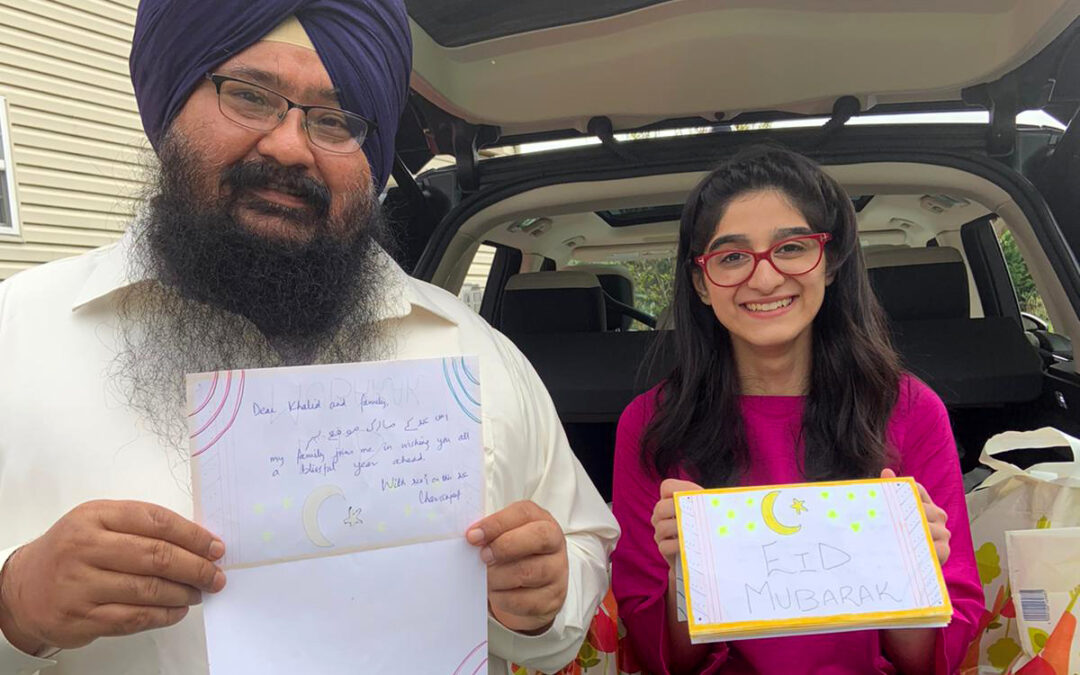
by blogadmin | Jun 17, 2020 | Blog Post, Delaware, Year 2020
Sometimes, claims of “greatness” can skew into unintended directions with unfortunate and ironic consequences. The current administration in Washington loves to boast that the U.S. is number one in most all things. Sadly, this is true in one regard: America tops the world coronavirus infection list.
According to fivethirtyeight.com’s latest polling numbers, 43 percent of Americans still approve of Trump’s presidency. If the Covid-19 numbers are an indication, he has certainly delivered on his promise to“Make America Great Again!”
I live in Delaware, the country’s second smallest state, which has stayed true to its low visibility reputation. Although it is called the First State because it was the first to ratify the U.S. Constitution, it may be the last state anyone thinks of, even in this country.
How unknown is Delaware? During a trip to Patiala when I was frequently visiting India, an acquaintance in Model Town asked me,“Gill Sahib was saying your family is in Amrika?”
“Yes,” I confirmed.
“Really? If so, why do you live here then?” he asked, as if he had caught me lying.
“I, too, live there,” I said with a smile.
He seemed baffled and started looking at my friend, Ajay Singla, who was standing next to me.
“Okay, if you insist…then tell me where in Amrika, California or New York?”
“Delaware,” I replied.
“No, no, hear me properly, I am not asking about your software business in Bangalore.”
Delaware is truly nice and quiet, relatively speaking, even though it has not been spared the effects of the pandemic. Many of us miss the traditional gatherings and events that we cherish. For example, this year I missed hosting the annual interfaith iftar dinner during Ramadan on behalf of Delaware Sikh Awareness Coalition. It was always a pleasure to behold 400-500 men, women, and children of various faiths and ethnicities intermingling in the joyous spirit of sarbat da bhala.
Well, as one of my teachers in P.P.S. Nabha used to often say, “When you genuinely wish something, Waheguru will always show the way.” So, on the day of Eid, I prepared a number of gift bags. In addition to the boxes of sweets and dates, I included a handmade Eid Mubarak card prepared by my daughter’s college friend, who comes from Islamabad and has stayed with us since the evacuation from their university campus because of the Covid crisis.
In the message on the card, I showed off my recently learned Urdu and drove around dropping off bags outside my Muslim friends’ houses. My Eid satisfaction was made even sweeter when one of the recipients, Khalid Motorvala, dropped off a bowl of seviyan outside my door that same evening.
As for Delaware, its relative obscurity may be coming to an end because it could be that the nation’s next president will come from our little state, which really would be a first for the First State.
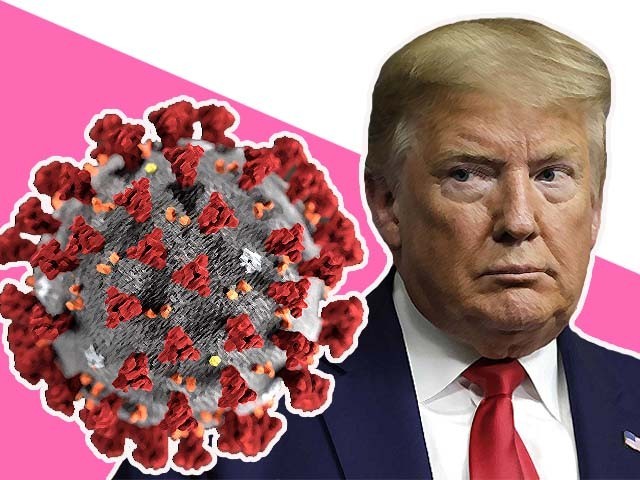
by blogadmin | Apr 9, 2020 | Blog Post, Media Publishing's, Year 2020
Donald Trump is a windbag, size XXL, whose air has started to leak now. If you haven’t experienced the self-congratulatory gusts that power his Orwellian disinformation machine generating untruths, false hopes and unprecedented blame-shifting, then how about this epitomic Trump response to a reporter asking how hospitals could prepare for COVID-19 patients:
“I like this stuff. I really get it. People are surprised that I understand it. Every one of these doctors said, ‘How do you know so much about this?’ Maybe I have a natural ability. Maybe I should have done that instead of running for president.”
The comment aptly reflects our 45th president’s relentless self-aggrandising personality that won’t allow him to take responsibility for anything negative or controversial. So why is the windbag leaking now?
Because in America today the cases of the virus are sprinting towards the 350,000 mark with more than 9,500 deaths, for now. Finally, irrefutable facts have made it difficult, though not impossible, for the president to continue to make silly comments from his powerful pulpit. Trump, who only recently declared that the pandemic was milder than the common flu, now has to admit, “It’s not the flu. It’s vicious.”
But his refusal for weeks to acknowledge this fact, coupled with his inability to understand the need for adequate federal preparation, left us ill-equipped to deal with this crisis quickly and effectively. It is the viciousness of the pandemic’s attack on the US economy that has pushed the president into moments of reality because it threatens the one claim he was counting on to fuel his reelection.
The recent historic fall in stocks and the record-breaking rise in unemployment numbers have demonstrated that Trump — who continually lauded himself as a great businessman and energiser of the economy — really has little or no influence when an “invisible enemy” strikes.
The best thing he can do is to stay out of the way and allow his medical experts to handle the Covid-19 response and let Congress and the appropriate federal agencies take care of the economic crisis. Most governors have risen to their responsibilities of leadership despite slow, often inept and confusing support from the White House. Still, Trump looks for others to blame for our predicament, even the medical professionals themselves whom he has accused of “hoarding” supplies and making unreasonable demands when they run out of personal protective equipment.
The country is fighting this battle on multiple fronts and has learned to do so for the most part without a general. For a man whose main interests appear to be self-promotion and maintaining an image of infallibility and necessity, it must be painful for him to encounter his own irrelevance.
But will he learn anything from this crisis?
Probably not, but who knows, perhaps he will learn that when it comes to viral outbreaks, it is unwise to make the kind of proclamation he issued on January 30th, when the World Health Organisation (WHO) declared the coronavirus, “a public health emergency of international concern.” Trump’s response:
“We think we have it very well under control. We have very little problem in this country at this moment—five. And those people are all recuperating successfully.”
Or this one he gave us in February:
“Looks like by April, you know, in theory, when it gets a little warmer, it miraculously goes away.”
Well, April is here and the country still stands at the edge of an abyss with a president still searching for a scapegoat.
When Trump unexpectedly won the Republican Party nomination for the 2016 presidential election I had asked myself, “Where is America going?” When he won against Hillary Clinton, my question was, “What will we do under this self-loving maniac if, God forbid, America faces a major crisis?”
I have my answer now, and fortunately for us, it doesn’t involve Trump. It is ordinary Americans who are doing extraordinary things with humbleness in their hearts and a prayer on their lips. Though alone, Americans are not apart. The Hope Dining Room in my city Newark, Delaware, is closed but the volunteers are collaborating online to find the ways and means to keep supplying lunches and dinners to the homeless and those who do not have access to food. School bus drivers are now delivering food to kids even though schools are closed.
Grocery stores are taking online orders and either dropping them outside the doors of the customers or keeping them ready for the customer pick-up in such a way that there is minimal interaction if any. Most importantly, healthcare workers, like those in other parts of the world, are risking their lives to do all they can to treat patients during these unprecedented circumstances.
My daughter is a sophomore at Bucknell University in Pennsylvania. When she had to evacuate as part of college closings across the country, she came home with a friend, an international student from Islamabad staying with us until travel is possible again. My most recent exit from home after many days was to get halal chicken and goat for her because the home deliveries we tried didn’t work out. I confess, however, that I am not doing it for nothing. She is helping me fulfill my longstanding aspiration of learning Urdu. She has turned out to be an excellent teacher adept at communicating with her 50-year old student. Like me, millions of Americans are finding ways to use their unexpected self-isolation to explore new and old interests in an effort to find a silver lining in this dark cloud.
This is a time when the world must come together to fight a common foe that knows no physical borders or class boundaries. But, unfortunately, Trump has predictably looked at the crisis through a lens of political self-perpetuation. He has once again revealed himself as a leader devoid of the skills and empathy needed to ease the pain and suffering of individuals and families in America and across the world.
————————-
This column was published online by the https://blogs.tribune.com.pk/ on April 06, 2020.
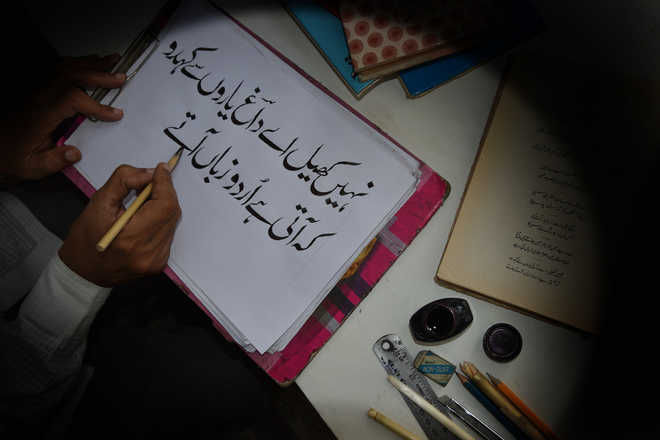
by blogadmin | Apr 9, 2020 | Blog Post, Media Publishing's, Year 2020
What are millions of people sitting at home doing with each day that brings the news of lockdowns, curfews, quarantines, and deaths around the world from the coronavirus? In the pre-virus days, individuals and families planned their weekends, especially holidays, and how to maximise their days off and coordinate children’s school schedules. The coronavirus has put an end to such concerns for most Americans. The first few days at home for many may not have been a challenge, but what effect will confinement, without an end in sight, have on the homebound? What will they do?
I, for one, will tell you what I am doing. I am ‘Urduising’ this furlough. Separated by centuries, the Urdu language and I were both born in India. But that isn’t the reason why I love it. It may seem strange, but I never learned to read, write or speak the language, although I can understand it somewhat. Why love it then?
Gulzar saheb, whose Jai Ho song won an Oscar, in an Urdu poem about the language a few years ago, said, ‘You get a high speaking Urdu,’ and ‘you taste a delectable pleasure when Urdu touches the throat, as if a sip of a fine drink seeped past it.’
My daughter is an undergraduate student at a university in Pennsylvania. Like schools across the US, all students were asked to vacate the campus and were informed that the remaining classes would be held online.
So, when we went to bring our daughter home, we took on an extra passenger. My daughter’s Pakistani friend had stayed with us during last year’s spring break. Given the global reach of the coronavirus, we were able to convince her parents in Islamabad that for reasons of safety, and to preempt the academic disruptions that international travel may bring, it would be better for her to stay with us.
Now, for the past few weeks, I have been her student. And she is a great teacher. She has set up an easy, but methodical approach to introduce me to the alphabet.
Our circumstances take me back to Gulzar’s poem, in which he invokes Mirza Ghalib and Meer Taqi Meer — the Urdu parallels of William Shakespeare and John Milton: ‘If travelling somewhere, sometime, someone recites a couplet from Ghalib or Meer’s poetry, even though he may be a total stranger, it feels like the person is my countryman.’
I marvel at the irony it entails. My father knew Urdu well and often used it. It never struck me at that time to learn it from him. My affinity to it has grown since his death in 2008. Maybe, Gulzar has a line about second chances in one of his poems.
So, as challenging as living in an unfamiliar, cloistered environment may be for most of us, it affords an enriching opportunity to pursue something new, or something old we thought we had lost. And that just might be worth staying inside for.
————————-
This column was published online by the https://www.tribuneindia.com/ on April 06, 2020.
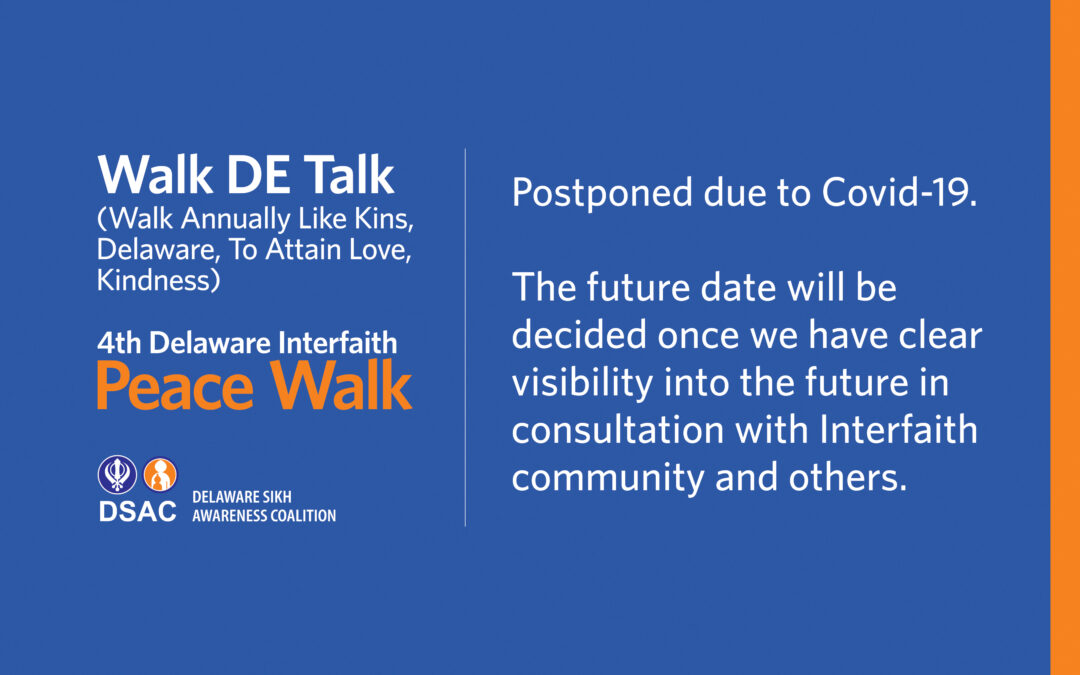
by blogadmin | Apr 6, 2020 | SAM, Year 2020
UPDATE: The 4th annual Walk DE Talk has been POSTPONED due to COVID-19. The future date will be decided once we have clear visibility into the future in consulation with Interfaith community and others.









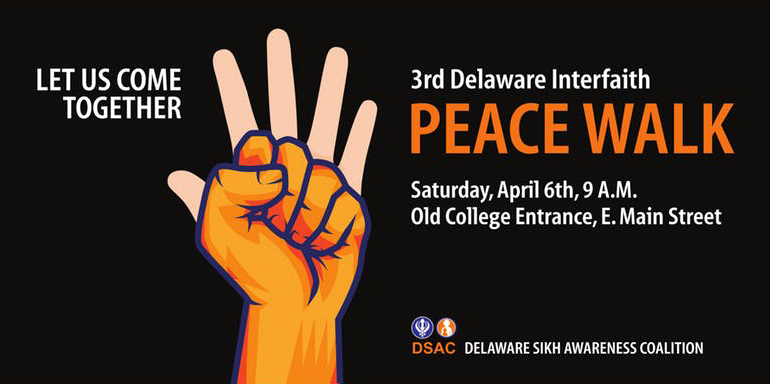
Recent Comments